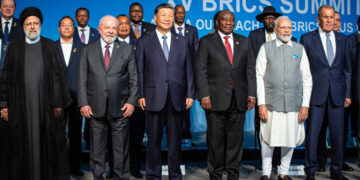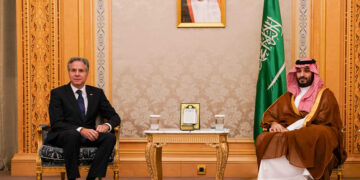Under the watch of Lieutenant Colonel Ali bin Rashid al-Zahrani, Warden of al-Haer Prison, a leading Saudi democracy activist died after prison officials denied him appropriate medical care. Al-Zahrani is also responsible for the mistreatment of additional Saudi activists, jailed for their peaceful speech.
In April 2020, Abdullah al-Hamid, one of the most prominent reformers in Saudi Arabia collapsed and slipped into a coma while in al-Haer prison (General Investigation Directorate Prison in al-Haer), according to his family. According to Amnesty International, officials at al-Haer prison had denied al-Hamid a long-overdue cardiac catheterization. He collapsed on the floor and lay there for hours before prison guards took him to al-Shumaisi hospital. He later died. Saudi authorities jailed al-Hamid for peacefully advocating democratic reforms in the Saudi absolute monarchy.
"Called the Saudi Mandela, al-Hamid led a civil movement that will influence the consciousness of generations of Saudis," said Abdullah Alaoudh, Gulf Director at DAWN. "Al-Zahrani should be held accountable for his medical negligence."
As warden of al-Haer, al-Zahrani also oversaw the mistreatment of peaceful religious scholar Salman Alodah, also jailed for his peaceful calls for reform. Al-Zahrani bears responsibility for Salman Alodah's mistreatment beginning in September 2019, including his prolonged solitary confinement with no justification. Alodah has been in solitary confinement since his arrest in September 2017. From mid-May to mid-September 2020, Alodah was held in incommunicado confinement in al-Haer Prison. During this period, Alodah's health deteriorated, and he lost half of his vision and hearing.
"The mistreatment and medical negligence in al-Haer and some other Saudi prisons are not individual cases or exceptions; they are systematic," Alaoudh said. "Prison officials like al-Zahrani bear responsibility for these abuses."
Al-Zahrani was also responsible for depriving Loujain Alhathloul of visits and allowing her only one phone call from May 2020 to October 2020. Al-Zahrani said these measures were taken to prevent spread of Covid-19. In a video recording, he said it is a measure taken against many prisoners. Many family members of political detainees, who chose to remain anonymous for fear of retaliation, told DAWN researchers that the measures included practices that were not related to Covid-19. For example, three families other than Alhathloul's and Alodah's said that al-Zahrani and his subordinates prevented their relatives in al-Haer prison from calling or having any contact with the outside world for months, even though there is no health reason to forbid phone calls.
Al-Zahrani comes from the sub-tribe of Hareer, within Zahran's tribe in al-Bahah, in the southern part of Saudi Arabia. He has served as warden of al-Haer prison since at least September 2019.
Prior to receiving his post at al-Haer, al-Zahrani was the head of Military Police and Coordinator for Media in Jeddah Prisons. Al-Zahrani bears overall responsibility for the treatment of prisoners in al-Haer Prison.
See cases: Loujain Alhathloul, Salman Alodah
DAWN requested a response from Lieutenant Colonel Ali bin Rashid al-Zahrani, by writing to the Saudi authorities on December 9, 2020, but no response was received by the time of publication.
***
Tweet the Saudi Ministry of Interior here and the Saudi Embassy in Washington DC here. Tell them to release peaceful activists and stop mistreating prisoners.
About DAWN's culprit gallery:
Tyrants need enablers who will implement their oppressive practices, even if it means abusing their fellow citizens. These agents often mask their complicity in the guise of professionals exercising their duties in offices, courtrooms, police stations, and interrogation rooms.
DAWN seeks to disclose the identity of the state agents who enable repression and, to make them recognizable at home and abroad. These individuals, whom DAWN calls "culprits," bear administrative, civil, moral, legal, and/or political responsibility for human rights and international humanitarian law violations.





































